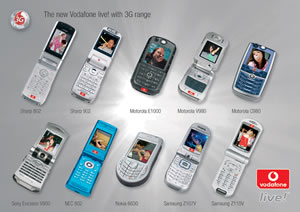Yell.com, the UK business information portal styled on the Yellow Pages, has just announced the launch of Yell.com Mobile. The service aims to give access to the company’s information on two million shops and services to mobile phone users through a Java application and even provides colour maps and directions from your location. Yell.com Mobile is compatible with a large range of handsets, and a list is available from their main website. The service, excluding the premium services detailed below, is free – excluding normal network charges.
To use the service for the first time, the applet has top be downloaded by texting “mobile” to 80248. You’ll then receive a message that will prompt the applet download through your GPRS connection.
Once installed, users can search Yell by business type, name, location or browse by categories like “Gifts and Shopping” or “Days and Nights Out”.
Once a business is located, users are offered three premium services, each costing UK0.25 (€0.36): Map, Directions or Business Card. The map is presented at 1:25,000 scale with seven levels of zoom, and directions can be tailored to driving or walking and are based on the user’s current location. The business card function simply copies the full details of the company you’ve searched for to your phone’s address book.
Eddie Cheng, eBusiness director, Yell, said: “Yell.com mobile is a unique service, the most advanced of its kind currently available in Europe. The revolutionary application gives mobile users full access to Yell.com’s business information whilst they’re on the move. Once downloaded, the application sits on the mobile handset with only requested data being transmitted over the air.”
 Vodafone is launching their 3G voice services in Europe and Japan with a big splash by announcing 10 handsets at the outset.
Vodafone is launching their 3G voice services in Europe and Japan with a big splash by announcing 10 handsets at the outset.